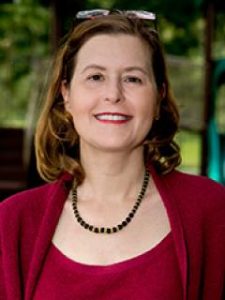By Sebastian Tello-Trillo
 Why did you agree to become the new president of ASHEcon?
Why did you agree to become the new president of ASHEcon?
It is an honor to be asked to lead this organization, and since ASHEcon is a young and growing society, there is an opportunity to shape it going forward.
What are your goals during the presidency of ASHEcon?
I want to build on the good work that has already been done, and to make ASHEcon even more inclusive, scholarly rigorous, and policy relevant than it already is.
What are aspects of ASHEcon that you enjoy?
I enjoy the sheer variety of research that ASHEcon encompasses.
What are aspects of ASHEcon that you think need improvement?
ASHEcon is a terrific organization, but like all human organizations, it can still benefit from improvement. I would like to see ASHEcon become even more welcoming to our diverse membership. I would also like to continue to see ASHEcon develop as a forum where politically sensitive health policy issues can be discussed in a respectful way that is rooted in science.
Have there been discussion on ideas for how to become more welcoming to a diverse membership?
Yes, this is an active topic of discussion on the ASHEcon board and we hope to unveil some new initiatives at our next meeting.
Is ASHEcon shifting to be more focused on policy and if so in what ways?
It is not clear there is a shift. By its nature, health economics touches on issues that are extremely important to public policy, such as health care costs.
How do you think academics should interact with policy and how does this vary by rank (junior/senior)?
Academics need to be firmly grounded in research. That said, when we know something of importance to policy debates, it is important to get it out there. Also, one’s choice of research topics can be guided to at least some extent by policy debates, taking account of the fact that we are just a lot slower to produce research findings than is ideal from the point of view of the typical news cycle. Some of the plenary speakers at the June ASHEcon meeting had some useful pointers for getting the word out, such as remembering that even relatively old papers may be relevant to a story that is currently in the news, and reaching out to reporters and policy makers about exciting projects that are currently in the pipeline.
What are topics that you would like to see ASHEcon cover more of?
ASHEcon conferences and the AJHE already cover a remarkably broad array of topics. My aim would be that they continue to do so.
Has the switch from a university campus to a hotel lived up to your expectations? Do you think ASHEcon should alternate years between hotels and campuses or stay with hotels going forward?
The fact that we have basically outgrown university campuses for meetings is a sign of success. I don’t see us going back to the on-campus model.
Talking about format of ASHEcon, Is 4 days the right length for conference, or should it be longer? Yes/No Why?
I think it as a good length for a conference. If it was longer, we might end up with more people deciding to come for only one or two days.
Should ASHEcon have pre-conferences (the way APPAM does)? Why or why not?
My understanding is that pre-conferences are often organized by separate organizations that capitalize on many of their members will be coming to attend the main conference. That is certainly a possibility with the ASHEcon conference.
Should there be more junior faculty involved in the leadership, and if so, how would you make that happen?
I’m not sure that it is in the interests of junior faculty to have a lot of additional administrative work, but we certainly try to take account of the ideas and comments of junior faculty as expressed, for example, in responses to our post meeting survey.
Sebastian Tello-Trillo is an Assistant Professor of Public Policy and Economics at the University of Virginia and a Co-editor of the ASHEcon Newsletter.
Janet Currie is the Henry Putnam Professor of Economics and Public Affairs and the the Co-Director of Center for Health and Wellbeing at Princeton University, and the President of ASHEcon.
